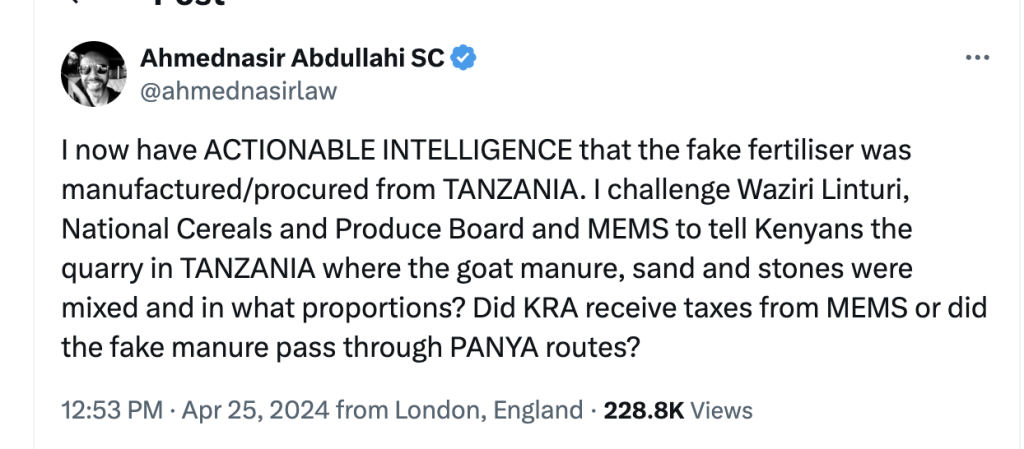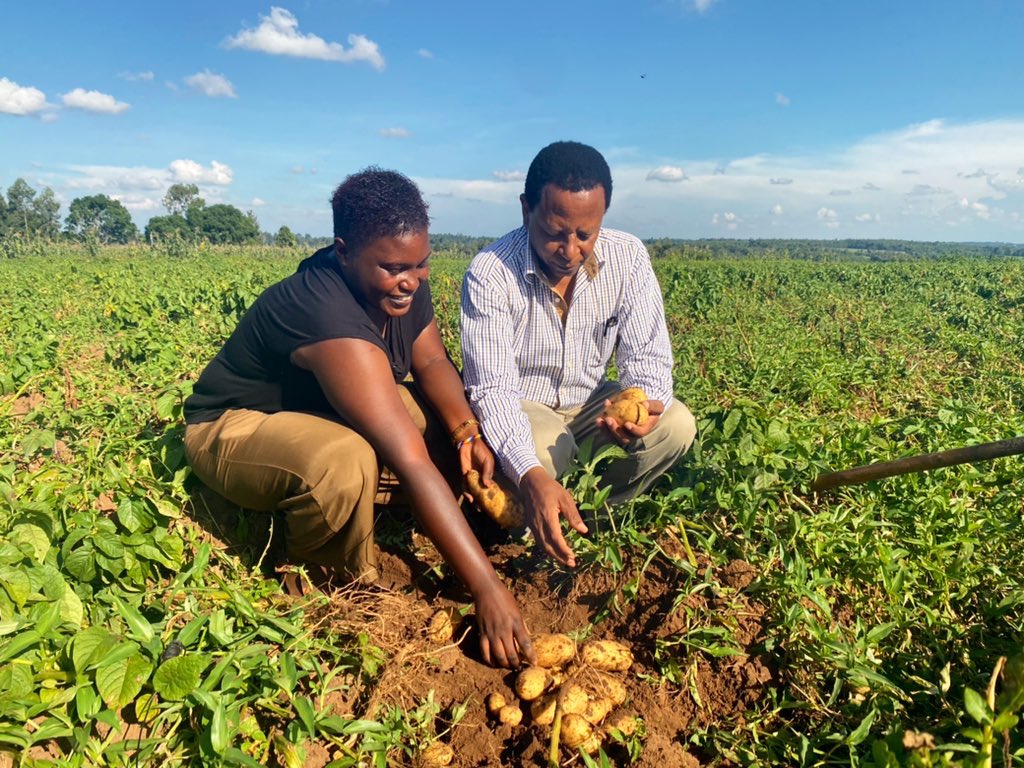Tanzania’s Firm Rebuttal to Accusations of Involvement in Fertilizer Scandal
Kilimokwanza.org Reporter
In a striking development, prominent lawyer Ahmednasir Abdullahi, known for his influential legal roles in Kenya, has ignited a significant controversy with a tweet accusing parties of importing substandard fertilizer from Tanzania. According to Abdullahi, this fertilizer, allegedly mixed from goat manure, sand, and stones, bypassed proper channels and quality checks, posing serious questions about agricultural integrity and regulatory oversight in Kenya.
In response to recent allegations by a Kenyan lawyer linking Tanzania to a fake fertilizer scandal, Tanzania’s Minister of Agriculture, Hussein M Bashe, has issued a strong denial, distancing his country from the controversy. The minister’s comments come after accusations that substandard fertilizer, reportedly mixed from goat manure, sand, and stones, was imported from Tanzania to Kenya, sparking a cross-border dispute over agricultural integrity and trade practices.
Minister Bashe took to Twitter to address the claims directly, questioning whether the comments were just typical banter between the neighboring countries or a serious accusation. He emphasized that Tanzania has no connection to any counterfeit agricultural products and stressed that the nation’s export activities are carried out with utmost integrity. “Tanzania does not export counterfeit commodities, including fertilizer, to Kenya,” Bashe stated, underscoring the rigorous standards and principled trade policies that govern Tanzania’s exports.
The minister’s tweet reflects a broader stance of defensiveness and a call for Kenya to introspect and manage its internal issues related to shortcuts and questionable trade practices. By advising Kenya to “clean up its own mess,” Bashe’s remarks not only reject the allegations but also suggest a frustration with the recurrent theme of ‘hustler culture’—a term often used in Kenyan political discourse to describe survival tactics by the economically disadvantaged, but here implied in a context of dodgy dealings.
This exchange highlights ongoing tensions and the delicate balance in trade and diplomatic relations between Tanzania and Kenya, two countries that frequently engage in mutual commerce but occasionally clash over trade disputes and regulatory standards. The controversy sheds light on the challenges of maintaining quality control in cross-border trade and the importance of transparent and accountable trade practices.
As this diplomatic dialogue unfolds, stakeholders from both nations are keenly watching how this will impact future trade relations and regulatory frameworks. With agriculture being a critical sector for Kenya and Tanzania, ensuring the integrity of agricultural inputs like fertilizer is paramount for economic reasons and food security and farmer livelihoods.
The lawyer’s tweet specifically calls out several key figures and institutions, including the Minister of Agriculture, Mithika Linturi, the National Cereals and Produce Board (NCPB), and MEMS, a company implicated in the scandal. Abdullahi challenges them to disclose the origins of the fertilizer’s materials and the processes involved in its manufacture and importation. He also raises concerns about potential tax evasion and using unofficial import routes, commonly known as ‘PANYA’ routes.
This controversy comes at a sensitive time when agricultural productivity and food security are paramount due to fluctuating global supply chains and economic pressures. The implications of distributing fake or substandard fertilizer could be dire for Kenyan farmers, affecting crop yields and the overall agricultural output, which many communities rely on for their livelihoods.
The call for transparency and accountability is louder than ever as stakeholders, including farmers’ associations, regulatory bodies, and the general public, demand clarity and action. The Kenyan government and the implicated parties are pressured to respond and take corrective measures to safeguard agricultural standards and ensure that such oversights are not repeated.
As this story develops, all eyes will be on Minister Linturi, the NCPB, and MEMS’ responses and how they address these serious allegations, which concern not only legal and ethical standards but also the fundamental trust in Kenya’s agricultural management systems.



